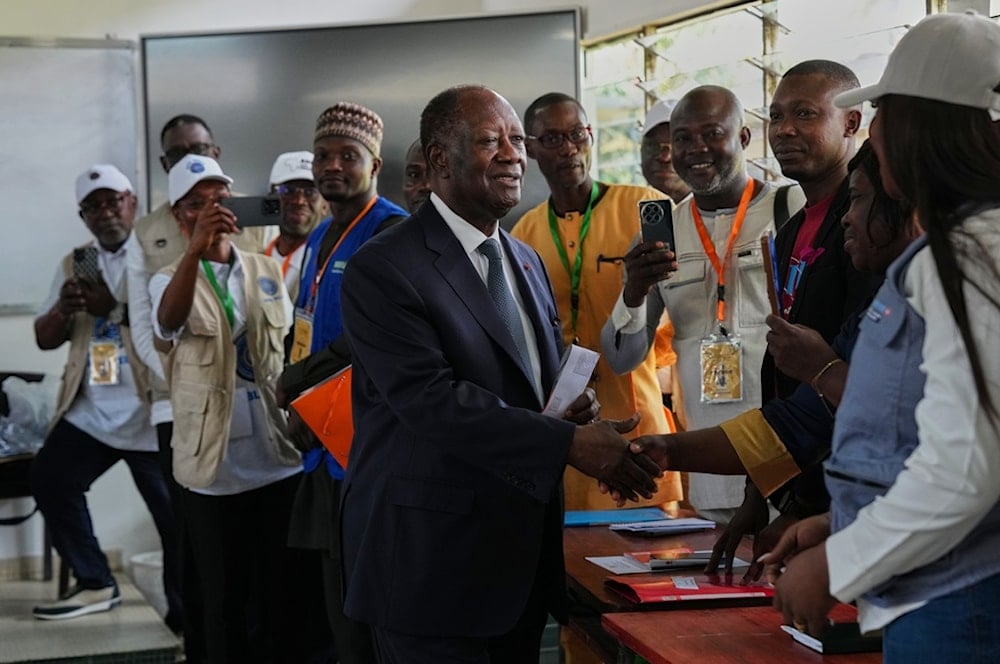Ouattara secures fourth term amid opposition boycott, low turnout
Ivory Coast's President Alassane Ouattara secured a fourth term with nearly 90 percent of the vote in an election marred by the exclusion of key rivals, low voter turnout, and opposition rejection of the results as illegitimate.
-

Ivory Coast President Alassane Ouattara arrives to cast his vote at a polling station during the presidential elections in Abidjan, Ivory Coast, Saturday, Oct. 25, 2025. (AP Photo/Misper Apawu)
Ivory Coast's President Alassane Ouattara has been re-elected for a fourth term, winning 89.77 percent of the vote in a contest overshadowed by the disqualification of his main rivals and widespread voter apathy, the country's electoral commission announced on Monday.
According to the commission's president, Ibrahime Kuibiert Coulibaly, voter turnout stood at just over 50 percent, similar to 2020 levels, when Ouattara also claimed victory with 94 percent of the vote after a boycott by major opposition parties. Entrepreneur Jean-Louis Billon came in second with just over 3 percent.
The vote, held on Saturday, took place amid political tensions and sporadic unrest. Although Ouattara's strongholds in the north recorded turnout near 100 percent, many polling stations in opposition regions, particularly in the south and Abidjan, were largely deserted.
Opposition boycott impact
This year's contest excluded key political figures, former president Laurent Gbagbo, barred due to a criminal conviction, and former Credit Suisse CEO Tidjane Thiam, ruled ineligible because of dual nationality. Their exclusion, analysts say, sapped public enthusiasm. "Their absence, their calls not to participate in the election, and the climate of tension that deteriorated in recent days foretold a significant demobilization of the electorate," said William Assanvo of the Institute for Security Studies.
In Gagnoa, Gbagbo's hometown, Ouattara won 92 percent of the votes, but with only 20 percent turnout. Opposition groups have already rejected the results, calling for fresh elections and accusing the government of staging a one-sided contest.
Political analyst Geoffroy Kouao told AFP that the results "show two things: first, Mr. Ouattara's supporters turned out in force, as shown by the Soviet-esque results in certain regions. And second, supporters of the (Gbagbo and Thiam's parties) did not go to the polls."
Election aftermath divide
The election followed weeks of deadly protests that left at least eight people dead and dozens injured, with the government deploying 44,000 security personnel and enforcing nighttime curfews in flashpoint areas.
Despite opposition claims of illegitimacy, the ruling party declared the process a success. Pro-government daily Patriote hailed "a calm election," while opposition newspaper Notre Voie described it as "an election reflecting a divided country."
Ouattara, who first rose to power after the 2010-2011 post-election conflict that killed more than 3,000 people, now faces renewed scrutiny over the state of democracy and political inclusivity in the Ivory Coast, a nation long seen as a relative island of stability in West Africa.
Read more: Madagascar revokes ex-president's citizenship after military takeover

 3 Min Read
3 Min Read










